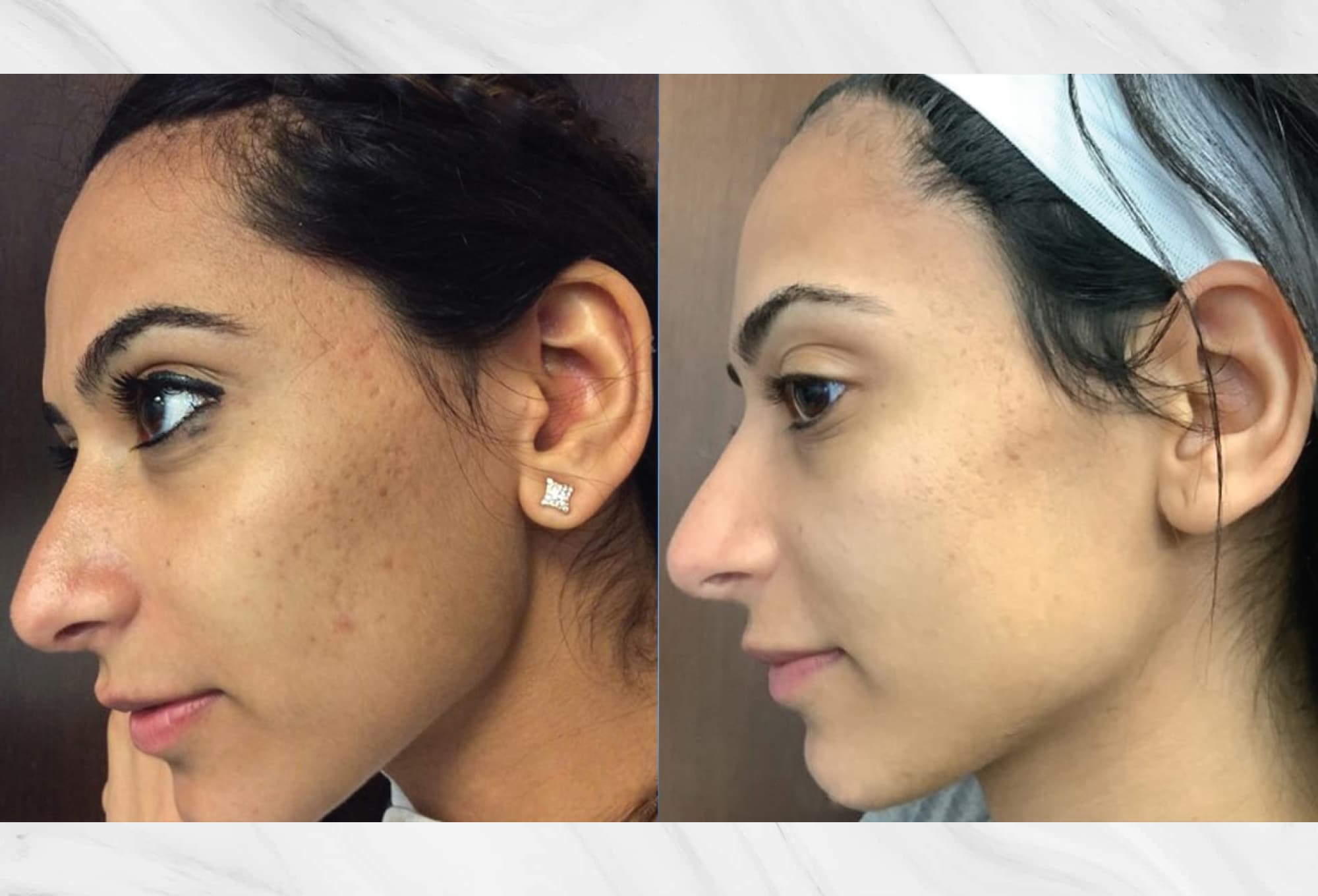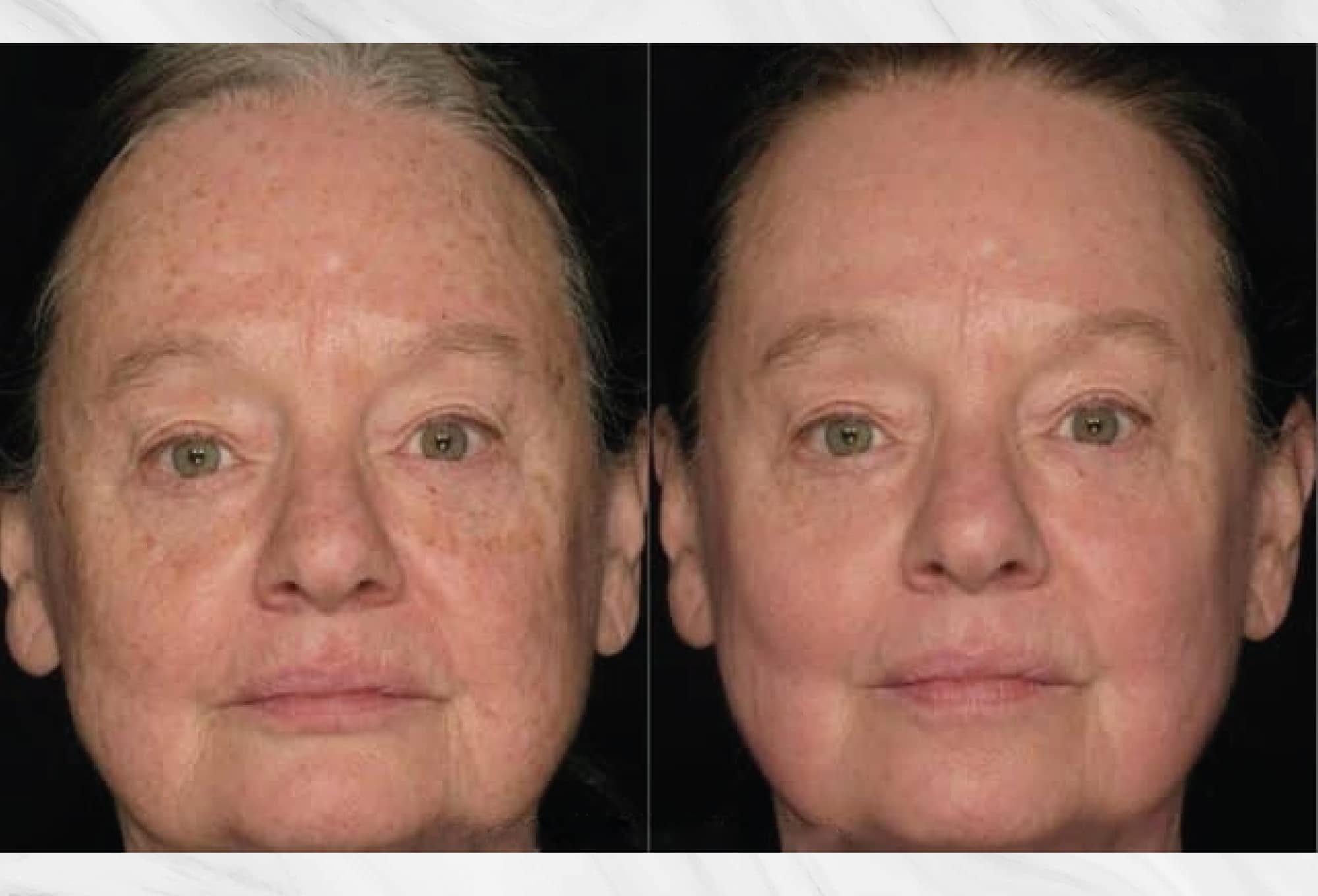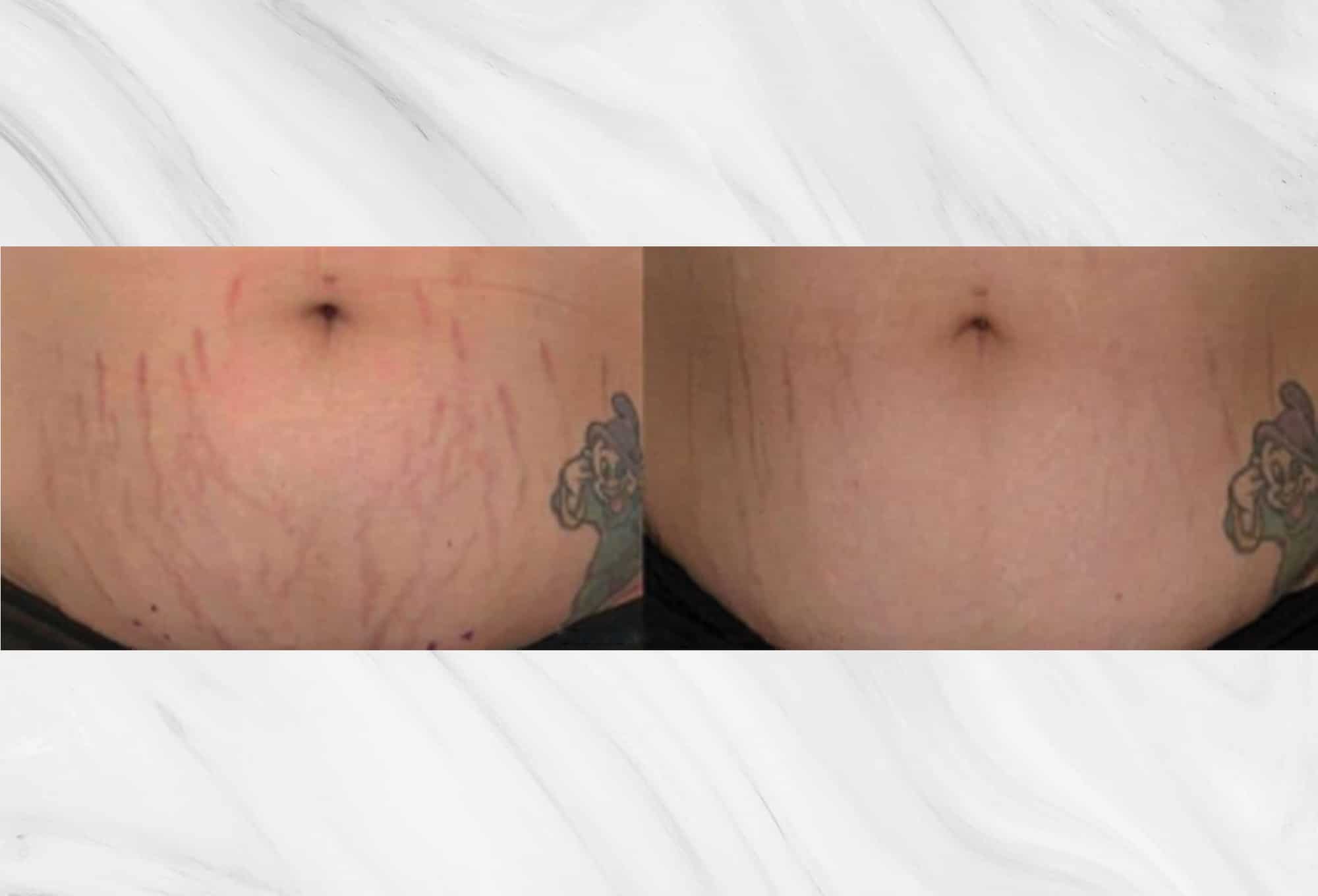Laser Skin Resurfacing
Turn back the clock on your skin with advanced resurfacing treatments from Dr. Geronemus, who has contributed to the clinical development of CO2, Erbium, and Fraxel laser technologies now used worldwide, and Dr. Hashemi, who brings extensive expertise in delivering these cutting-edge treatments. Our extensive collection of resurfacing devices allows us to tailor each treatment to your individual skin needs.
Before & After Images
Disclaimer: Results may vary from patient to patient. Results are not guaranteed.
Our Lasers for Skin ResurfacinG
NON-ABLATIVE
LASEMD™ ULTRA
Enjoy the rejuvenating effects of this versatile laser that can be used anywhere on the body.
- Downtime: Varies. Downtime depends on treatment intensity and can range from 24 hours to 6 days for high-density treatments.
- Pain level: Mild. You’ll experience a heating and tingling sensation that can intensify with the number of passes.
- Number of treatments: 3-5 sessions. Depends on your skin type and treatment area.
- Results duration: Gradual. You’ll notice results a few days after the first session with optimum results after 2-4 sessions.
FRAXEL® DUAL
Look younger without drastic changes or long recovery times.
- Downtime: Moderate. 1-2 days of swelling, 2-4 days of redness, and 4-7 days of flaking.
- Pain level: Varies on procedure depth.
- Number of treatments: Typically 3-5 treatments spaced 4-6 weeks apart, but can vary by patient.
- Results duration: Immediate and progressive. The most visible results occur after 2-3 months.
AVAVA™ Miria LASER
Achieve tightening, lifting, and smoother, more youthful skin with this advanced non-ablative laser.
- Downtime: Minimal. Expect slight redness for 1-2 days post-treatment.
- Pain level: Mild to moderate. A tingling and heat sensation may occur during treatment.
- Number of treatments: 3-6 treatments spaced 4-6 weeks apart, depending on skin type and treatment area.
- Results duration: Gradual. Initial improvements are seen within a few days, with optimal results appearing after 3-4 sessions.
ABLATIVE
Sciton Joule® Profractional
Minimize the appearance of scars, wrinkles, and sun damage with this precision laser.
- Downtime: Moderate. Swelling and redness can last for up to 5 days, with some peeling or flaking.
- Pain level: Moderate. You may feel warmth or a mild prickling sensation.
- Number of treatments: 1-3 treatments, depending on the severity of the skin concern.
- Results duration: Results develop progressively over several weeks as the skin produces new collagen and elastin.
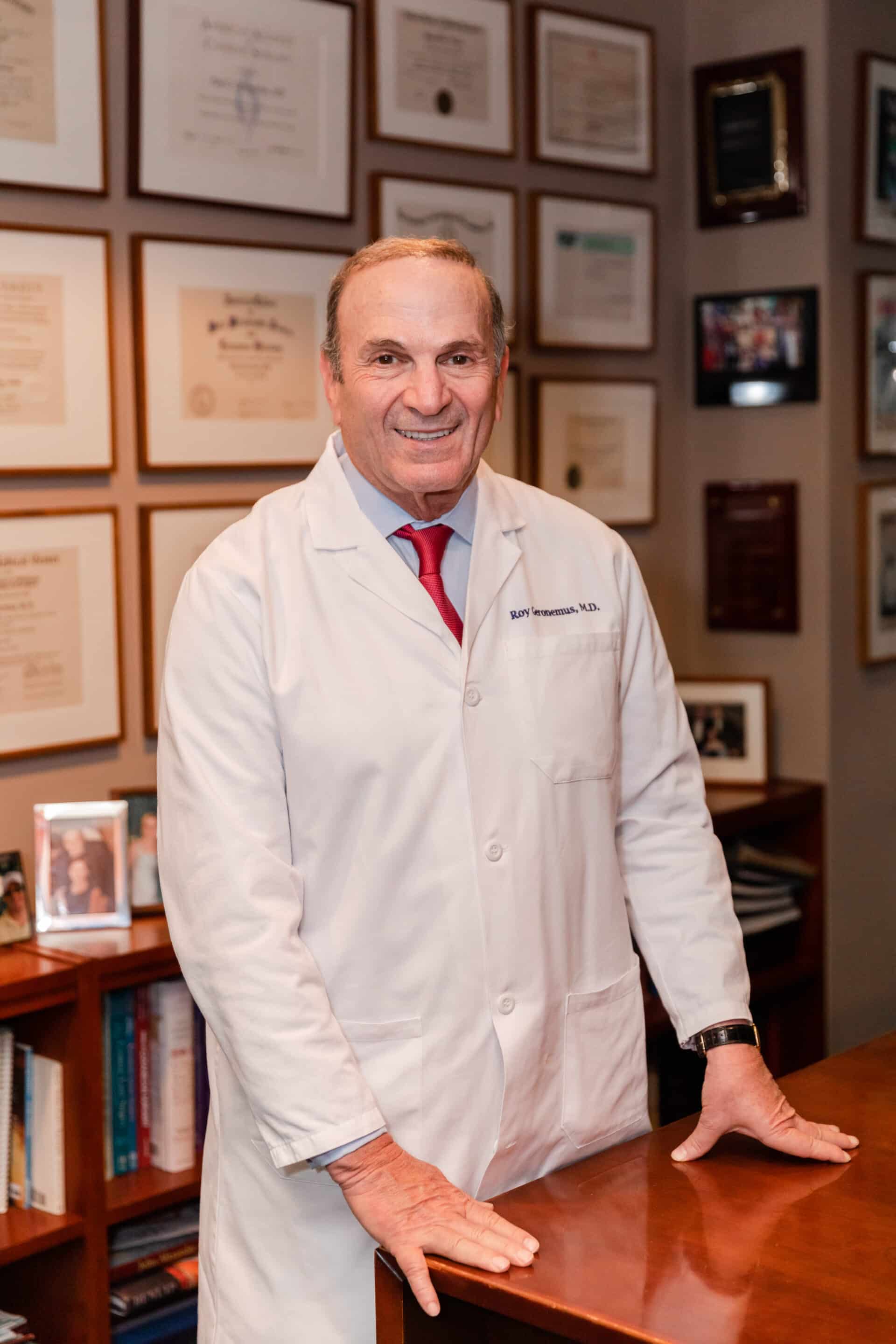
Your Laser Skin Resurfacing Experience
Consultation
Come in for a consultation with Dr. Geronemus or Dr. Hashemi to discuss your goals and learn more about how our treatments can help you. We will evaluate your skin condition in the areas you want to address and give you a treatment plan and what outcomes you can realistically expect. Take this time to ask all your questions before scheduling your treatment so you are sure this will be right for you.
Treatment
Dr. Geronemus and Dr. Hashemi perform all treatments, using the laser that is most effective for your desired results. Although the treatments are relatively painless, we offer topical numbing for your comfort during the procedure.
Post-Treatment
Follow-up appointments are scheduled 4-6 weeks apart, and the number of treatments depends on your goals and skin condition. We’ll monitor your progress and provide post-treatment guidelines for maintaining your results and protecting your skin.
Meet Roy Geronemus, MD
Dr. Geronemus has been a leading figure in laser treatment in dermatology for decades. He has contributed to the field as a practitioner, researcher, and innovator, publishing hundreds of peer-reviewed articles and being instrumental in the development of laser technologies. Dr. Geronemus has been recognized as one of America’s Best Cosmetic Dermatologists by Newsweek (#4 in 2023) and voted as one of Castle Connolly’s Top Doctors each year since 1999.
- Past president of the American Society of Laser Medicine and Surgery and the American Society for Dermatologic Surgery
- Recognized as one of America’s Best Cosmetic Dermatologists by Newsweek (#4 in 2023)
- Castle Connolly Top Doctor, 1999-2025
- Published over 450 research articles on laser dermatology
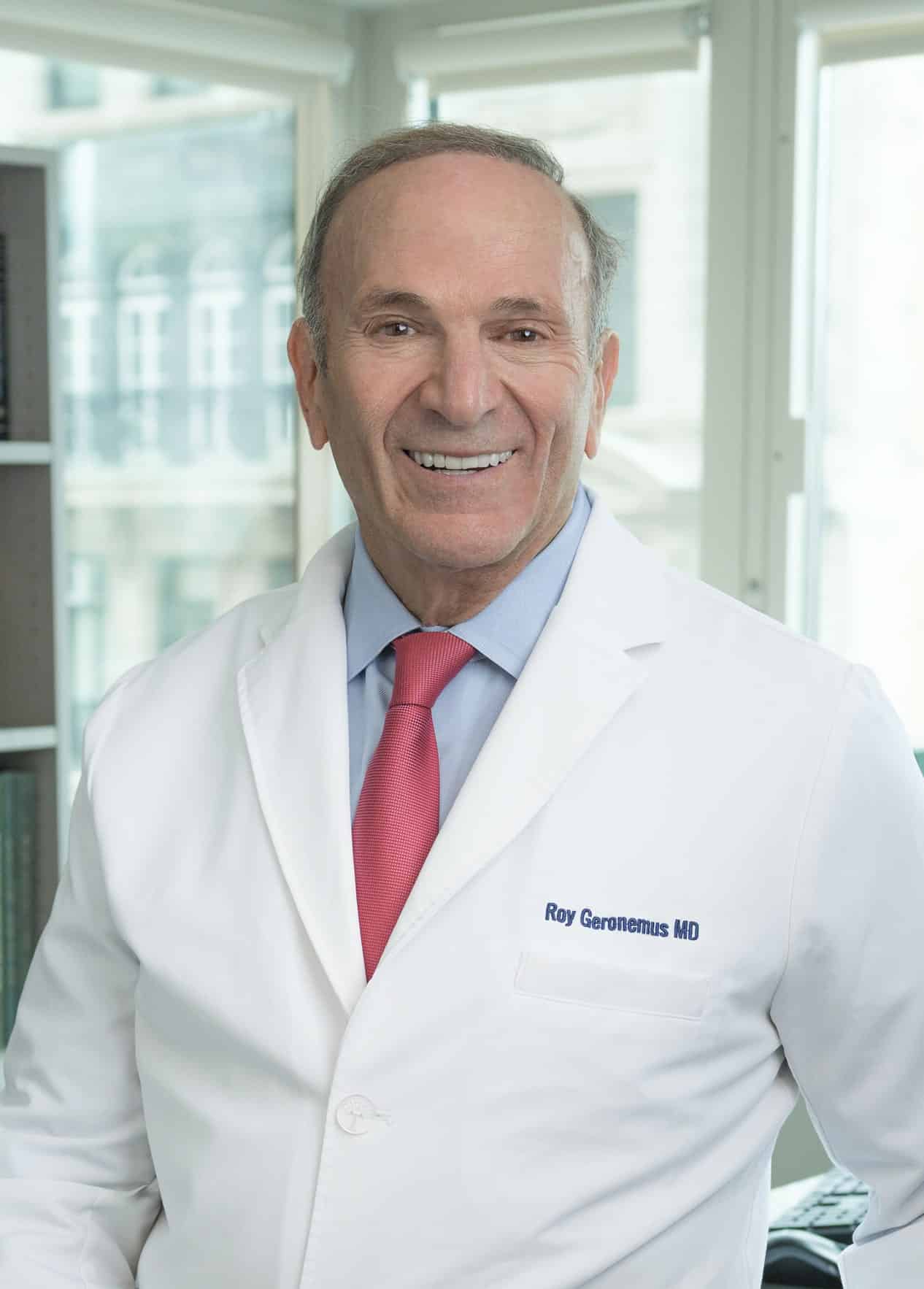
Meet David Hashemi, MD
Dr. Hashemi is a Harvard-trained, double board-certified dermatologist with dual fellowship training in laser/cosmetic dermatology and Mohs surgery. With extensive training at Massachusetts General Hospital and under Dr. Roy Geronemus, he delivers advanced laser treatments and surgical expertise.
- Harvard Medical School dermatology residency across all major Harvard hospitals
- Dual fellowship in laser/cosmetic dermatology and Mohs surgery in New York City
- Published 25+ peer-reviewed articles on laser treatments and advanced dermatologic procedures
- Expert in the full range of laser technologies, injectables, and energy-based devices
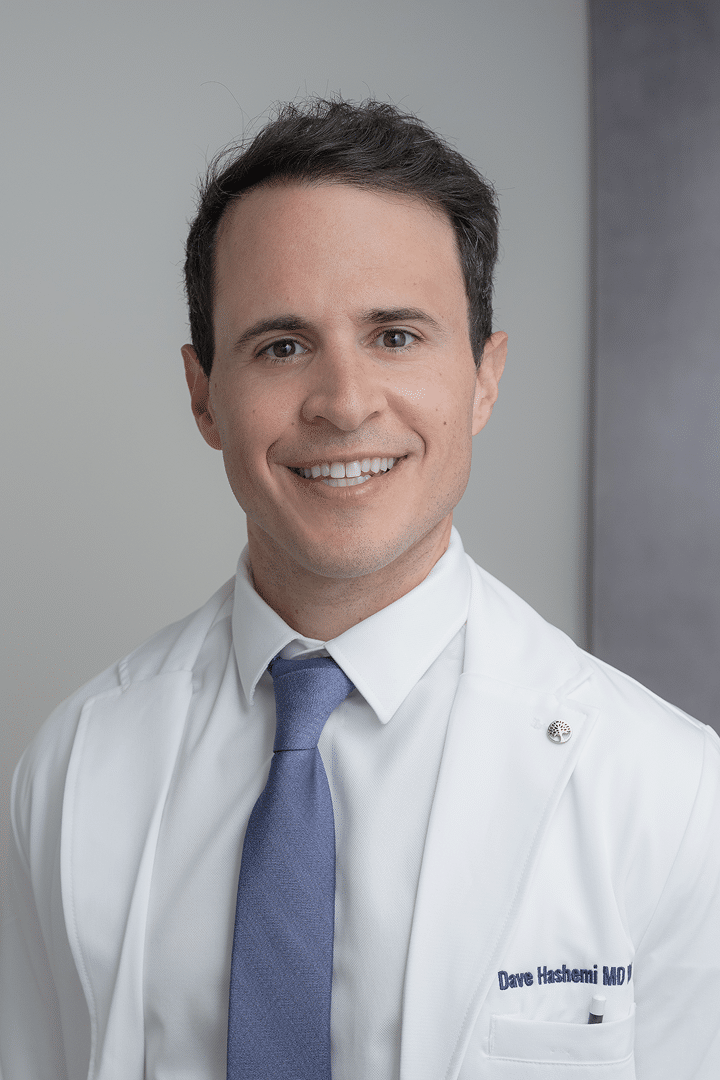
Your Skin is in Good Hands
Dr. Geronemus is a pioneer in laser dermatology and one of the preeminent figures in laser application. Dr. Hashemi was personally trained by Dr. Geronemus and is also considered a leader in cosmetic dermatology. You can trust their expertise to deliver the results you need.
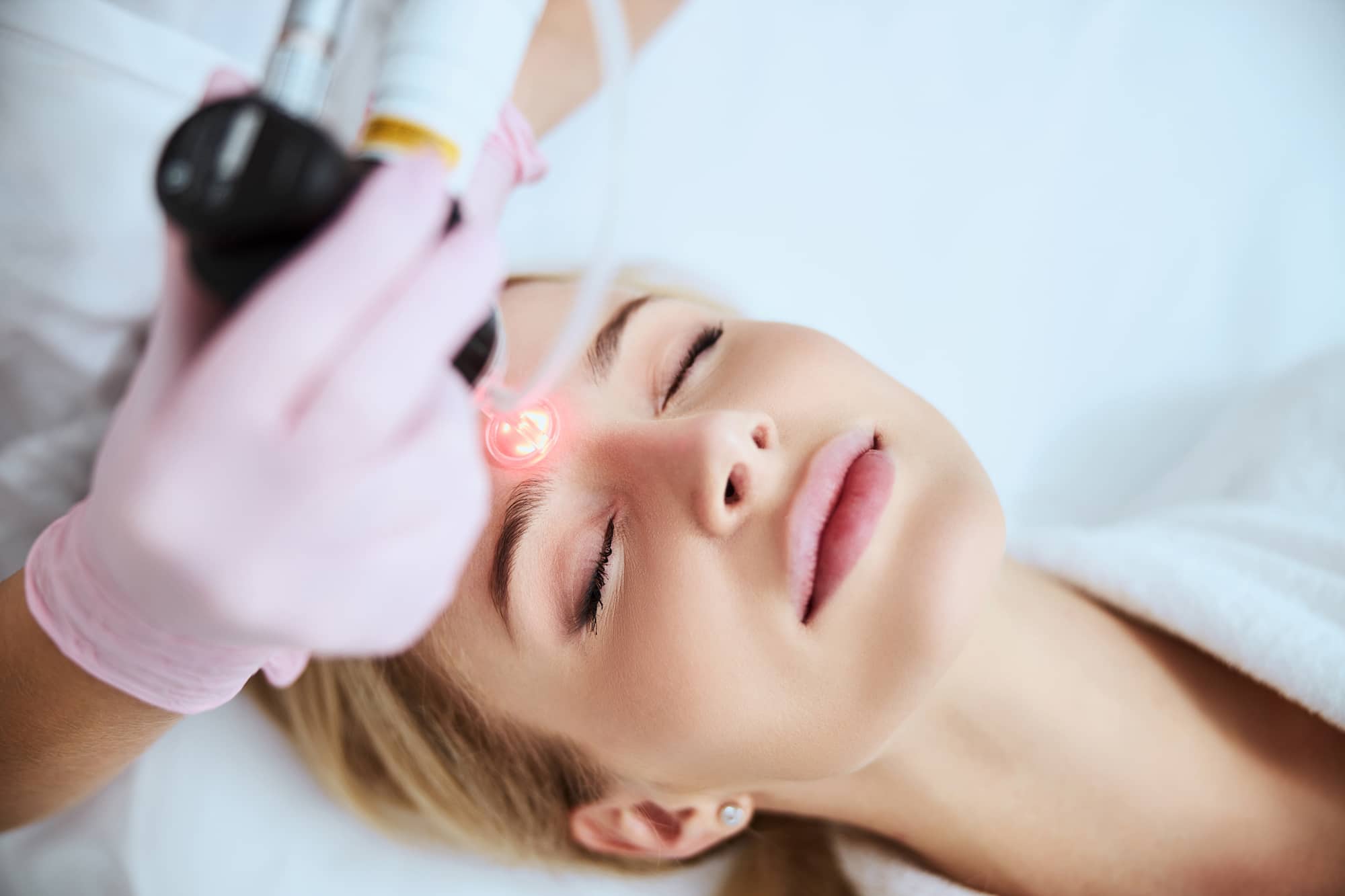
Publications
450+
Publications on dermatology, including hundreds in laser treatment.
Experience
30+
Years of experience with laser technology.
Track Record
10k+
Laser skin resurfacing treatments delivered.
Patient Testimonials
Kind, genuine, compassionate and an expert in his field! I feel so lucky to have been treated at his clinic again this year.
Alannah Banovac
Google Review
Dr. Geronemus is the pioneer of laser surgery and the office staff are very professional, attentive and friendly. I wouldn’t go anywhere else!
Susie Sheffield Smith
Google Review
I had an excellent experience from the moment I entered the office until I left to go home. I received a laser treatment on my face and the doctor was so gentle I could hardly feel it. Dr Geronemus was exceptionally nice to me and the staff is very helpful.
Harriet Moser
Google Review
Frequently Asked Questions About Laser Resurfacing
What exactly is laser skin resurfacing and how does it work?
Laser resurfacing (or laser peel) uses focused light energy to remove damaged skin layers and stimulate natural collagen production. The laser targets skin concerns while protecting surrounding tissue, allowing your body's natural healing process to create fresher, younger-looking skin.
Is facial laser treatment safe?
Yes, laser skin resurfacing is safe when performed by qualified professionals. Dr. Geronemus is a pioneer in laser dermatology with over 30 years of experience and has been instrumental in developing many current laser technologies.
What skin concerns can laser resurfacing address?
Face laser treatments can improve multiple skin conditions, including:
- Fine lines and wrinkles
- Sun damage and age spots
- Uneven skin tone and texture
- Acne scarring
- Large pores
- Certain types of pigmentation issues
What's the difference between ablative and non-ablative laser resurfacing?
Ablative laser resurfacing removes the outer layer of skin and is typically more intensive with longer recovery times but more dramatic results. Non-ablative treatments work by heating deeper skin layers while leaving the surface intact, requiring multiple sessions but with minimal downtime.
What should I expect during recovery?
Recovery varies depending on the type of laser peel treatment. You may experience:
- Redness and swelling for several days
- Mild peeling or flaking skin
- Increased sensitivity to sunlight
- Temporary darkening or lightening of treated areas. Most patients return to normal activities within 5-7 days, though complete healing can take several weeks.
Are there any reasons I shouldn't get laser treatment?
Laser resurfacing may not be suitable for everyone. Factors that might affect your candidacy include:
- Active acne or infections
- Certain skin conditions or medications
- Pregnancy
- Recent sun exposure
- History of keloid scarring
A thorough consultation will determine if you're a good candidate for treatment.


